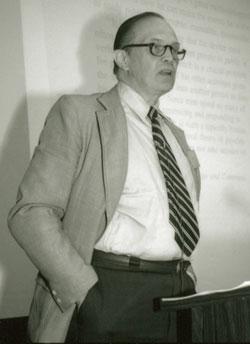
Cognitive science is the interdisciplinary, scientific study of the mind and its processes with input from linguistics, psychology, neuroscience, philosophy, computer science/artificial intelligence, and anthropology. It examines the nature, the tasks, and the functions of cognition. Cognitive scientists study intelligence and behavior, with a focus on how nervous systems represent, process, and transform information. Mental faculties of concern to cognitive scientists include language, perception, memory, attention, reasoning, and emotion; to understand these faculties, cognitive scientists borrow from fields such as linguistics, psychology, artificial intelligence, philosophy, neuroscience, and anthropology. The typical analysis of cognitive science spans many levels of organization, from learning and decision to logic and planning; from neural circuitry to modular brain organization. One of the fundamental concepts of cognitive science is that "thinking can best be understood in terms of representational structures in the mind and computational procedures that operate on those structures."

Cognitive psychology is the scientific study of mental processes such as attention, language use, memory, perception, problem solving, creativity, and reasoning.
The following outline is provided as an overview and topical guide to linguistics:
Cognitive linguistics is an interdisciplinary branch of linguistics, combining knowledge and research from cognitive science, cognitive psychology, neuropsychology and linguistics. Models and theoretical accounts of cognitive linguistics are considered as psychologically real, and research in cognitive linguistics aims to help understand cognition in general and is seen as a road into the human mind.
Psycholinguistics or psychology of language is the study of the interrelation between linguistic factors and psychological aspects. The discipline is mainly concerned with the mechanisms by which language is processed and represented in the mind and brain; that is, the psychological and neurobiological factors that enable humans to acquire, use, comprehend, and produce language.
Cognitive science is the scientific study either of mind or of intelligence . Practically every formal introduction to cognitive science stresses that it is a highly interdisciplinary research area in which psychology, neuroscience, linguistics, philosophy, computer science, anthropology, and biology are its principal specialized or applied branches. Therefore, we may distinguish cognitive studies of either human or animal brains, the mind and the brain.

George Armitage Miller was an American psychologist who was one of the founders of cognitive psychology, and more broadly, of cognitive science. He also contributed to the birth of psycholinguistics. Miller wrote several books and directed the development of WordNet, an online word-linkage database usable by computer programs. He authored the paper, "The Magical Number Seven, Plus or Minus Two," in which he observed that many different experimental findings considered together reveal the presence of an average limit of seven for human short-term memory capacity. This paper is frequently cited by psychologists and in the wider culture. Miller won numerous awards, including the National Medal of Science.

Discourse analysis (DA), or discourse studies, is an approach to the analysis of written, vocal, or sign language use, or any significant semiotic event.
The cognitive revolution was an intellectual movement that began in the 1950s as an interdisciplinary study of the mind and its processes. It later became known collectively as cognitive science. The relevant areas of interchange were between the fields of psychology, linguistics, computer science, anthropology, neuroscience, and philosophy. The approaches used were developed within the then-nascent fields of artificial intelligence, computer science, and neuroscience. In the 1960s, the Harvard Center for Cognitive Studies and the Center for Human Information Processing at the University of California, San Diego were influential in developing the academic study of cognitive science. By the early 1970s, the cognitive movement had surpassed behaviorism as a psychological paradigm. Furthermore, by the early 1980s the cognitive approach had become the dominant line of research inquiry across most branches in the field of psychology.

Dan Isaac Slobin is a professor emeritus of psychology and linguistics at the University of California, Berkeley. Slobin has made major contributions to the study of children's language acquisition, and his work has demonstrated the importance of cross-linguistic comparison for the study of language acquisition and psycholinguistics in general.
Sentence processing takes place whenever a reader or listener processes a language utterance, either in isolation or in the context of a conversation or a text. Many studies of the human language comprehension process have focused on reading of single utterances (sentences) without context. Extensive research has shown that language comprehension is affected by context preceding a given utterance as well as many other factors.
The linguistics wars were a protracted academic dispute inside American theoretical linguistics that took place mostly in the 1960s and 1970s, stemming from an intellectual falling out between Noam Chomsky and some of his early colleagues and doctoral students. The debate began in 1967, when linguists Paul Postal, "Haj" Ross, George Lakoff, and James McCawley—self-dubbed the "Four Horsemen of the Apocalypse" —proposed an approach to the relationship between syntax and semantics, which treated deep structures as meanings rather than syntactic objects. While Chomsky and other generative grammarians argued that the meaning of a sentence was derived from its syntax, the generative semanticists argued that syntax was derived from meaning.
In linguistics, grammaticality is determined by the conformity to language usage as derived by the grammar of a particular speech variety. The notion of grammaticality rose alongside the theory of generative grammar, the goal of which is to formulate rules that define well-formed, grammatical, sentences. These rules of grammaticality also provide explanations of ill-formed, ungrammatical sentences.

Michael Tanenhaus is an American psycholinguist, author, and lecturer. He is the Beverly Petterson Bishop and Charles W. Bishop Professor of Brain and Cognitive Sciences and Linguistics at the University of Rochester. From 1996 to 2000 and 2003–2009 he served as Director of the Center for Language Sciences at the University of Rochester.

Janet Dean Fodor is distinguished professor emerita of linguistics at the City University of New York. Her primary field is psycholinguistics, and her research interests include human sentence processing, prosody, learnability theory and L1 (first-language) acquisition.

Angela Friederici is a director at the Max Planck Institute for Human Cognitive and Brain Sciences in Leipzig, Germany, and is an internationally recognized expert in neuropsychology and linguistics. She is the author of over 400 academic articles and book chapters, and has edited 15 books on linguistics, neuroscience, language and psychology.
Raymond W. Gibbs Jr. is a former psychology professor and researcher at the University of California, Santa Cruz. His research interests are in the fields of experimental psycholinguistics and cognitive science. His work concerns a range of theoretical issues, ranging from questions about the role of embodied experience in thought and language, to looking at people's use and understanding of figurative language. Raymond Gibbs's research is especially focused on bodily experience and linguistic meaning. Much of his research is motivated by theories of meaning in philosophy, linguistics, and comparative literature.
In linguistics, comparative illusions (CIs) or Escher sentences are certain comparative sentences which initially seem to be acceptable but upon closer reflection have no well-formed, sensical meaning. The typical example sentence used to typify this phenomenon is More people have been to Russia than I have. The effect has also been observed in other languages. Some studies have suggested that, at least in English, the effect is stronger for sentences whose predicate is repeatable. The effect has also been found to be stronger in some cases when there is a plural subject in the second clause.
The Usage-based linguistics is a linguistics approach within a broader functional/cognitive framework, that emerged since the late 1980s, and that assumes a profound relation between linguistic structure and usage. It challenges the dominant focus, in 20th century linguistics, on considering language as an isolated system removed from its use in human interaction and human cognition. Rather, usage-based models posit that linguistic information is expressed via context-sensitive mental processing and mental representations, which have the cognitive ability to succinctly account for the complexity of actual language use at all levels. Broadly speaking, a usage-based model of language accounts for language acquisition and processing, synchronic and diachronic patterns, and both low-level and high-level structure in language, by looking at actual language use.
Maria Fernanda Ferreira is a cognitive psychologist known for empirical investigations in psycholinguistics and language processing. Ferreira is Professor of Psychology and the Principal investigator of the Ferreira Lab at University of California, Davis.








